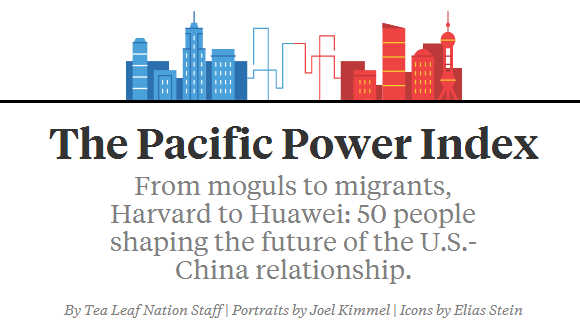Kobe Bryant was named as one of 50 people that helped shape Sino-U.S relationships by Foreign Policy in its inaugural Pacific Power Index.
This index lists 50 people that have done contribution to the relation between the two countries, under six fields: media and internet, corporations, culture and entertainment, education, finance, and military and government.
The definition of the index from Foreign Policy:
“Foreign Policy’s inaugural Pacific Power Index is not a list of the 50 most powerful individuals in the U.S.-China relationship. Instead, it is a story about the power of that nexus itself, and its ability to impact American and Chinese lives.”
Kobe Bryant is the only sports person in this index. He is grouped under the culture and entertainment category.
This is Foreign Policy’s comment on him:
“Kobe Bryant is the closest thing the NBA has to an ambassador in China, the sport’s largest market outside the United States. The “Kobe” chants heard on his annual offseason trips to China are deafening, chaos reigns at his public appearances, and his smile graces billboards from Shanghai to Shandong.”
Indeed. Although Kobe is at the end of his career in NBA, he is still one of the most welcomed athletes in China. He is a viewership guarantee for NBA games broadcasted in China.
Some people say that Kobe and Jordan helped NBA gain the present dominance in Chinese market, especially Kobe, whose long career made him more important than Jordan who was already at the end of his career when NBA entered China.
At the moment, NBA is doing very well in the Chinese market. It is reported by Chinese media that NBA has over 30 sponsors from China and gets hundreds of million dollars every year. While NBA is not the most popular league in America, it is one of the most welcomed foreign leagues in China. This is what Kobe partly contributed to.
Now, if you browse the sports section of a major website in China such as Sina and NetEase, you are very likely to see Kobe’s latest news. His recent ups and downs in the 2014-15 Season are closely tracked by Chinese media and fans.
At last, this is Foreign Policy’s reason for choosing him, "for helping keep the NBA wildly popular in China".
Source: Lanxiong, Foreign Policy.
